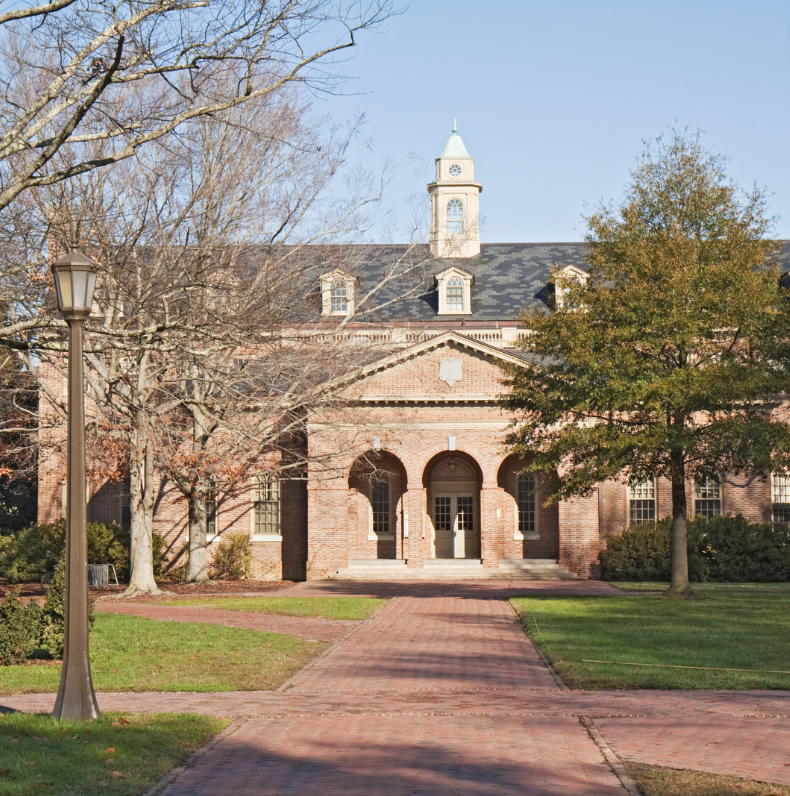As we near the end of July, it’s the perfect time to remind everyone that more and more official supplemental essay prompts are being released. If you’re still wrapping up your Common App personal statement or other generics, now’s a smart time to schedule a few more meetings with us – things are picking up fast!
And while the heat and humidity don’t seem to be letting up anytime soon, there’s no shame in retreating to an air-conditioned movie theater to catch summer blockbusters like Superman or Jurassic World. Personally, I’d rather be poolside – but when the air feels just as wet as the water, indoor fun wins. I’ve been cooling off with a crisp watermelon salad (feta and mint required!) and diving into all the latest in higher ed.
BIGGEST COLLEGE-RELATED NEWS OF THE WEEK
AI Joins the Admissions Team at Virginia Tech
Yesterday, Virginia Tech announced two major changes in advance of this year’s application cycle. First, the Early Action deadline has been moved up from November 15 to November 1. Second, the university will begin using an AI-supported model to assist in reviewing student essays. Each essay will now be evaluated by a human reader and an AI tool developed by Virginia Tech researchers. If their scores differ significantly, a second human reader steps in to ensure fairness. This new system is designed to help the university manage a record-breaking volume of applications while maintaining review quality and speeding up decision timelines. However, it’s important to note that all final admissions decisions will continue to be made by human admissions officers. That said, there are some important implications to this shift in essay review that families should be aware of. Stay tuned – we’ll break it all down in a separate blog post early next week!
Harvard Swings Back with Public Service Scholarship
The Harvard vs. Trump narrative thickened this week with a bold move from Harvard’s Kennedy School: a new $100,000 scholarship for veterans of the military and public service who are pursuing a master’s degree. With many sectors of the federal government still reeling from funding cuts, the initiative aims to prepare the next generation of civic leaders – and support professionals whose careers have been disrupted. Funded by anonymous donors, the one-year scholarship is the largest ever offered by the Kennedy School, covering full tuition, fees, and providing a modest living stipend. The school plans to enroll at least 50 students in the first cohort, with eligibility requiring at least seven years of experience in public or military service.
University of Delaware Receives Massive $71.5 Million Gift for Business School
Big news out of the University of Delaware: alum and CEO Robert Siegfried just gifted his alma mater a staggering $71.5 million to launch the Siegfried Institute for Leadership and Free Enterprise. The new business institute will spotlight conservative political values and free-market thinking – positioned as a counterweight to UD’s more left-leaning Biden Institute. While the political framing has sparked some debate, the bottom line is huge for business students. The donation will expand business classroom space by 40%, and Siegfried is also adding another $6 million for student scholarships. Politics aside, this is a game changer for any future business leader – and definitely something to factor in if you’re applying with an eye toward business programs.
US Students Heading to the UK in Record Numbers
With U.S. higher education facing ongoing turbulence – from budget cuts and political pressures to increased scrutiny of DEI-related programs – it’s no wonder more students are exploring options abroad. This week, UCAS (the UK’s college admissions service) reported nearly 8,000 applications from U.S. students for Fall 2025, the highest number since tracking began in 2006. While the long-term impact of the domestic shifts remains unclear, one thing is certain: interest in international study is rising. We’re not suggesting you pass on strong U.S. programs, but if you’ve ever considered studying abroad, now might be a good time to take that interest seriously. Reputable global universities can offer solid academics, strong career outcomes, and sometimes even cost savings!
Is Trump Saving College Sports?
After months of speculation, a draft executive order focused on college athletics surfaced this week – bringing renewed attention to the complex issues surrounding athlete compensation. The proposal centers on name, image, and likeness (NIL) rights, aiming to create a unified federal framework in place of the current patchwork of state laws. The goal: protect student-athletes from exploitative financial deals, standardize rules around Olympic eligibility, and help colleges navigate antitrust concerns related to long-term scholarships. While the order is still in draft form and subject to change, it signals a potential shift that could benefit college athletes nationwide – especially those seeking fair compensation and clarity around scholarship support.
BEST ARTICLES OF THE WEEK
As the implications of the “Big, Beautiful Bill” continue to unfold, anxiety around student loans is running high – especially for students considering graduate degrees. This article in Slate highlights the concern among future lawyers, doctors, and other professionals who now wonder if they’ll be able to afford to finish their degrees, let alone start them.
The OBBBA will eliminate the Graduate PLUS Program, which previously allowed students to borrow up to the full cost of their graduate or professional education. Under the new legislation, federal borrowing is capped at $100,000 – a figure that falls far short of most grad school price tags. While current borrowers can still use the PLUS program for three more years, rising seniors and future grad students are rethinking their plans. For many, that means choosing less expensive or more local schools, prioritizing scholarship opportunities, or even changing career paths altogether to avoid private loans and unfavorable repayment terms.
But for students rethinking grad school entirely, this might be the moment to consider unconventional – yet increasingly viable – paths to success. Take the rise of Minecraft entrepreneurs, for example. As this Business Insider article explains, young people are transforming their gaming passion into full-fledged careers, with some building entire businesses around modpacks, content creation, and YouTube channels. Jessica Lindl, author of The Career Game Loop: Learn to Earn in the New Economy, puts it well: “The surge of Minecraft entrepreneurs tells us something profound: the new economy doesn't reward rigid credentials. We're moving from a degree-based economy to a skills-based, portfolio-driven one.”
This shift underscores an important lesson we often try to teach our clients during the college application process: how you talk about your experiences matters. Whether it’s building elaborate LEGO worlds or crafting mods in Minecraft, those hobbies might reflect critical thinking, creativity, or entrepreneurial savvy – all of which make for standout college essays and, increasingly, real-world career value.
That same generation is now diving deep into another emerging tool: generative AI. While teachers and essay coaches might groan, there’s no denying AI’s role in the modern workforce. Professionals across industries use tools like ChatGPT for routine writing tasks – which is why we found this Inside Higher Education story so fascinating. The University of Michigan Law School is now requiring (!) applicants to use generative AI in one of their optional essay prompts. The school is hoping to better understand how future law students interact with AI tools – and how that might reflect their adaptability and foresight. Here’s the prompt:
“TO BE ANSWERED USING GENERATIVE AI: How much do you use generative AI tools such as ChatGPT right now? What’s your prediction for how much you will use them by the time you graduate from law school? Why?”
The school will compare this AI-generated response to the applicant’s other writing, which must be completed without AI assistance. UM’s innovative approach recognizes AI’s growing influence – and also tests students’ ability to use it responsibly and reflectively. We’re curious to see if other colleges begin incorporating similar prompts into their applications.
Need a dose of optimism? New Jersey’s Centenary University is offering something we never knew we needed: a PhD in Happiness Studies. Starting this fall, the four-year, fully virtual program will focus on “human flourishing,” drawing from fields like psychology, literature, neuroscience, and religion. Graduates may go on to careers in education, consulting, public policy, or mental health advocacy. In a world grappling with stress and uncertainty, higher education’s embrace of well-being feels like a much-needed step forward. And hey – a few government officials with a doctorate in happiness couldn’t hurt!
OFFICE HAPPENINGS
Let’s wrap up with a few key updates for our local readers:
NOVA’s Early Online College program is back – and it’s a golden opportunity for rising juniors and seniors (students entering 11th or 12th grade) to take up to two tuition-free college courses per semester. It’s a fantastic way to experience college-level academics, strengthen your transcript, and potentially earn transferable credits. Even if the credits don’t carry over to your dream school, admissions officers love to see this kind of initiative. But don’t wait – the application deadline is today (Friday, July 25, at 5 PM)!
In other local news, Fairfax County Public Schools has made an important change to its grading policies. Students who retake a major test or project can now earn a maximum score of 90% on that redo – even if they ace it. While this policy is meant to encourage preparation and accountability, it also means that making the most of the first attempt is more important than ever. If it’s a choice between completing a minor assignment or studying for a big test, our advice is to hit the books and focus on what counts most toward your grade!
FCPS also made the decision to tighten its cell phone policy starting this August. Students will no longer be allowed to use personal devices – including phones, AirPods, smartwatches, and the like – during class or during passing periods. Devices must be off and put away throughout the academic day, except during lunch and before or after school hours.
This marks a shift from the previous policy, which permitted device use between classes. It’s a good idea to talk with your student about how this change might affect their routines – especially if they’ve been relying on their phone for time checks, music between classes, or quick messages.
And finally, mark your calendars: Wednesday, October 8 is a testing day for FCPS high schoolers (in addition to many independent schools).10th and 11th graders will take the PSAT/National Merit Scholarship Qualifying Test (NMSQT), while 12th graders will participate in SAT School Day on campus. Loudoun County students in grades 9-11 and Montgomery County students in grade 10 will also take the PSAT in October on dates that vary from school to school.
Remember: because these exams are administered by the College Board, accommodations are not automatic – even if your student has existing supports in place at school. If your rising 10th, 11th, or 12th grader may need testing accommodations or multilingual support, you’ll need to submit the appropriate forms to your high school SSD coordinator by Monday, August 4.
Stay happy, everyone!



























